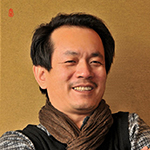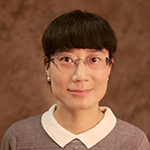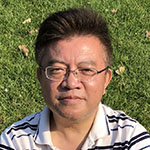The lightning catcher
1. A Bare-Handed Lightning Catcher
Many friends are destined to leave
Many things are doomed to vanish
Just like we are bound to see dust and cinders
Just like cloud shadows and broad-leaved epiphyllums
Just like a bare-handed lightning catcher
Just like the grey bristles and manes of wolves
Running hither and thither on a moorland
Running hither and thither on the mountain ridges
In the bleak twilight or broad daylight
Just like some kind of hallucination that has flashed by
Just like stones, descending with a waterfall
That glitter-glister in the splashing white light of the falls
The bare-handed lightning catcher
Many trees have been knocked down by him
Many mountains have been overthrown by him
Many rivers have been held in his hands like handles
As if he were holding whips
The man who lashes us with a whip
Who thrashes trees, hills, and dales
Who slashes top-heavy hairy savages
Who catches lightning with bare hands
Is the man who is waiting for us
To catch our and the world’s
Ghost shades and silhouettes
As if we were hunting bears in shadows
徒手搏取闪电的人
很多朋友注定要离开
很多事物注定要失踪
就像我们注定要见到尘埃和灰烬
就像云影和昙花
就像徒手搏取闪电的人
就像狼的灰色的鬃毛
在旷野上奔走
在山脊中奔走
在黯淡的暮色中或光天化日之下
仿佛某种幻觉一闪而过
就像随着瀑布跌落下来的石头
在瀑布飞溅的白光中闪闪烁烁
徒手搏取闪电的人
很多树被他打倒了
很多山被他打倒了
很多河流像把柄一样被他握在手里
就像握着鞭子
用鞭子抽打我们的人
抽打树和山野的人
抽打头重脚轻的毛野人的人
那个徒手搏取闪电的人
是等着我们从影子里
捕熊一样捕捉
自己的和世界的
鬼影子的人
2. The Man Digging a Well at the Seashore
The man digging a well at the seashore
Looks wan and gloomy
He is familiar with the headland, dull seabirds, and even sea ghosts
Sometimes he lives with them in the mountains
Sometimes he lives alone on a reef
Sometimes he lives, when the fishing season is over,
On a tottering mast whence he can overlook the entire ocean
The ocean is like a sapphire blue wasteland
Surrounded by white spindrifts and mournful warbles of white seabirds
All the white birds are still soaring above the ocean
All the black birds are winging in the sky
The man digging a well at the seashore
Is like a gigantic spider using a fishing net
To suspend himself from the teetering mast
Like a seabird whose wings have been broken by the ocean many times
The man digging a well at the seashore
Knows very well secrets of the ocean
His small well is so exquisite
So crystal clear that all the people coming to watch the ocean want to drink from it
A fish conceiving for long but unable to spawn wants to drink from it
Even the entire ocean dying of thirst
Wants to drink from it
在大海边上打水井的人
在大海边上打水井的人
是个憔悴的人 阴郁的人
他熟悉海岬、笨海鸟甚至海鬼
有时他和它们一同住在山上
有时他独自住在礁石上
有时他住在休渔期
可以俯瞰整座大海的摇摇欲坠的桅杆上
大海仿佛蔚蓝色的荒地
簇拥着白色海浪和白海鸟哀婉的鸣叫
所有白色的鸟仍在大海上飞
所有黑色的鸟都在天空中飞
在大海边上打水井的人
像一只巨大的蜘蛛 用渔网
把自己悬挂在摇摇欲坠的桅杆上
像一只已经多次遭遇过大海折翅的海鸟
在大海边上打水井的人
他是如此深谙海水的秘密
他的小小的水井如此精致
如此清澈 所有前来看海的人要喝它
一条怀孕已久却无法产卵的鱼要喝它
快要渴死的整座大海
也要喝它
Translator’s Notes
Yan An’s poems are highly experimental, unconventional, and unique according to the standards and traditions of Chinese culture, considering their aesthetic value, contents, philosophical denotations and meanings. As a pioneer in modern westernized Chinese poetry, Yan An has completely transformed Chinese readers’ concepts and understanding of poetry through his unique views about the universe, life, society and people. His way of thinking is unusual and unconventional. His poems do not contain any of the Chinese elements traditionally and commonly depicted by other Chinese poets; instead, they can transcend the boundaries between nations and cultures, reaching for a wider audience across the world. In each of his poems, behind his boundless imagination, there lies a story and Yan An’s sentiments and understandings of life, people, society, and the universe.
His language is intense and abstract. Just like his other poems, these two poems are rich in literary devices, such as, similes, metaphors, personifications and parallelisms. These literary devices have well served their purpose in the Chinese versions. Nevertheless, in their English versions, some transcreation techniques have to be exploited to retain the same or similar effect. For example, in translating the second to the fourth lines of the third stanza of the poem “A Bare-Handed Lightning Catcher,” the phrase “The man” was omitted at the beginning of these three lines to make the translation more succinct, clear and rhythmic and to avoid repetition and drabness.
There were also other, different sorts of transcreation in the process. A new word was coined through reduplication: “glitter-glister,” in the eighth line of the second stanza. In the second line of the second stanza, we conjoined two similar linguistic elements, in this case: words in order to enrich the content of the translation: “bristles and manes.” To avoid repetition and boredom, some synonyms are used to translate the same Chinese words. For example, in the first three lines of the third stanza of the poem “A Bare-Handed Lightning Catcher”, the word “抽打” is translated into three synonyms: “lashes,” “thrashes,” and “slashes.”
In addition, we added some extra words or meaning to a few words in the target text or translated a simple word into a more complicated concept. It helps the lines of the same stanza have similar lengths. For example, the word “奔走” (literally: “running”) is translated to “Running hither and thither”. As a result, the line that contains this word has a similar length to the other lines in the same stanza and the target text is more vivid than a literal translation. Because the Chinese language emphasizes meaning (parataxis) while the English language emphasizes structure (hypotaxis), by adding extra meaning to some part of the target text, the transcreated text has also integrated with the source language and culture to some extent.
All in all, we have attempted to bring something new and foreign into English to enrich it, by helping English poets and readers unleash their creativity, imagination, inspiration, and by bridging or integrating American and Chinese way of thinking and culture. Also, we have endeavored to create some novel transcreation techniques to help with any future translation of Yan An’s poems.

Yan An is a most famous poet in contemporary China, author of fourteen poetry books including his most famous poetry book Arranging Boulders which has won him The Sixth Lu Xun Literary Prize, one of China’s top four literary prizes. He is the winner of various national awards and prizes. He is also the Vice President of Shaanxi Writers Association, the head and Executive Editor-in-Chief of the literary journal Yan River, one of the oldest and most famous literary journals in Northwestern China. He is a national committee member of the Poetry Committee of China Writers Association.

Chen Du has a Master’s Degree in Biophysics from Roswell Park Cancer Institute, the State University of New York at Buffalo and a Master’s Degree in Radio Physics from the Chinese Academy of Sciences. She revised more than eight chapters of the Chinese translation of the biography of Helen Snow, Helen Foster Snow – An American Woman in Revolutionary China. In the United States, her translations have appeared in Columbia Journal, Lunch Ticket, The Bare Life Review, and River River. She is also the author of the book Successful Personal Statements. Find her online at ofsea.com.

Xisheng Chen is a translator and ESL linguist and educator. His educational background includes: BA and MA from Fudan University, Shanghai, China, and a Mandarin Healthcare Interpreter Certificate from City College of San Francisco, California. His working history includes: translator for Shanghai TV Station, lecturer at Jiangnan University in Wuxi, China, adjunct professor at Departments of English and Social Sciences, Trine University, Angola, Indiana, and high-tech translator for Futurewei Technologies, Inc. in Santa Clara, California.

 BACK TO ISSUE
BACK TO ISSUE